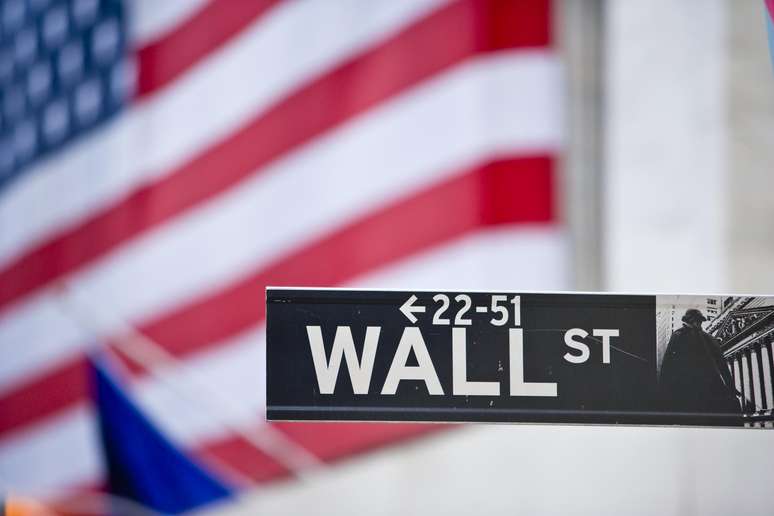Brazilian GDP Surprised Analysts; outside Brazil, many fear a climate of economic crisis.
The Brazilian economy grew by 1.9% in the first three months of the year compared to the immediately preceding three months, growth higher than expected by many market analysts.
The numbers were released by the IBGE on Thursday (1/6).
Data shows that agriculture was the “engine” of Brazilian growth in early 2023 — expanding by 21.6% in the first three months of the year compared to the last quarter of 2022. 0.6% . Industry, on the other hand, recorded a slight decline in activity of 0.1%.
While Brazil started 2023 with growth higher than expected by market analysts, who predicted an expansion of around 1.3%, some countries seem to be facing a more complex scenario.
In Brazil, the Focus bulletin, which contains weekly forecasts of the Brazilian financial market and is published by the Central Bank, showed a reduction in inflation expectations. The Brazilian market believes that inflation will stop at 5.71% in 2023 and that the interest rate will drop from the current 13.75% to 12.5%.
In the last twelve months, the Brazilian economy grew by 3.3% compared to the four immediately preceding quarters.
In the rest of the world, some economies have experienced weak economic growth. Germany recently confirmed that it is in a technical recession. The UK has so far escaped a recession, but its GDP has grown at a rate of just 0.1% over the past two consecutive quarters. The United States confirmed lower than expected growth in the first quarter of this year and several analysts are even discussing an American recession by the end of the year.
Among emerging countries, India and China continue to record strong growth rates, both higher than Brazil (see numbers below).
Difficult year for the world economy
In its April report, the IMF says the hope that there will be a smooth recovery in the world in 2023 is not confirmed. Instead of easing inflation and returning to growth, the world is now seeing high inflation and tremors in financial markets, according to the Fund.
The IMF now forecasts that global inflation, which was 8.7% in 2022, is expected to fall to 7% by the end of this year. Pre-pandemic levels of inflation and interest rates would only arrive in 2025, according to the Fund.
The world economy is experiencing a context of great uncertainty about the future. The entire world has suffered heavily from the coronavirus pandemic, which has caused unemployment and mass shutdowns of large sectors of the world economy since 2020.
In some countries, the recovery has been relatively rapid and pre-pandemic economic levels have been restored.
However, since last year, many of these economies have stagnated. This is partly due to a new crisis caused this time by high inflation. The pandemic has disorganized international production chains at a time when consumption around the world was overheating, with the end of the most drastic moment of the pandemic. With a shortage on offer, many prices have skyrocketed.
Several places – such as Brazil, Europe and the United States – have started to face the so-called cost-of-living crisis.
In countries like the UK and the US, inflation has reached its highest level in 40 years. To control prices, central banks around the world have started raising interest rates, which causes an economic slowdown by increasing investment costs for companies. High inflation has also prompted general strikes in Europe.
The scenario has become even more complex with the outbreak of war in Ukraine last year, which shook commodity prices, and with localized banking crises this year.
Economists cannot say exactly what could happen from now on. The only consensus is that the immediate future is not promising.

“The prediction is that growth [da economia mundial] will decline from 3.4% in 2022 to 2.8% in 2023, before stabilizing at 3% in 2024. Advanced economies are projected to see a particularly pronounced growth slowdown, from 2.7% in 2022 to 1, 3% in 2023”, writes the IMF in its April report on the outlook for the global economy.
Some believe that the interest rate hike cycle may be nearing its end in some countries.
In Brazil, President Luiz Inácio Lula da Silva has criticized the central bank, headed by Roberto Campos Neto, for keeping interest rates at their highest levels in recent years.
There are those who predict that this scenario of high interest rates and low growth will continue for a few months around the world – and there are also those who say that countries like the US could soon enter a recession. Last month, Germany announced that it was in a technical recession (two consecutive quarters of negative growth).
The global recovery depends on the decline in inflation, which has responded slowly to high interest rates. But so far there have been no clear signs in any country that inflation may come down.
US in a recession?
The biggest concern in today’s world is the slow pace of the largest economy – the United States. The US economy recovered relatively quickly from the coronavirus crisis, but is now experiencing moments of uncertainty.
In the first three months of the year, the US economy grew at an annualized pace of 1.1%, far below most economists’ closing projection of 2%.
In previous quarters, the US economy grew at a much faster annualized pace: 2.6% (Q4 2022) and 3.2% (Q3 2022).
Household consumption, which is the main engine of the American economy, continues to grow. However, all sectors seem to be feeling the effects of the efforts of the monetary authorities to lower inflation with a cycle of high interest rates.
The US central bank raised US interest rates in ten consecutive meetings, hitting a range of 5% to 5.25%.

The US stock market showed little optimism regarding the future. The Dow Jones is at 33,000 points this month, the same as at the beginning of the year. Between 2020 and 2022, during the pandemic, the Dow Jones rose 75%, from about 20,000 points to about 35,000 points.
There are now several signs that the US economy is in a downturn: industrial production and bank lending are declining. The banking sector fears a crisis due to the collapse of medium-sized banks. Big companies continue to promote mass layoffs. There are economists who predict a recession towards the end of this year.
“We continue to expect a mild technical recession in the US, with two consecutive contractions in the second and third quarters,” the Economist Intelligence Unit consultancy said.
A US recession would impact the entire world, given the importance of the US market to international trade and finance.
Other countries
The British economy narrowly escaped a technical recession.
UK GDP grew by 0.1% in the first quarter of this year, the same pace recorded in the last quarter of last year. For this year, the Central Bank of England believes that the economy will remain stagnant in the first half, with recovery in the second. The forecast is slightly more optimistic than the one made in February, when the bank forecast a recession for the UK.
Unlike the rest of Europe and the US, the UK economy has only recently been able to reach pre-pandemic levels. The UK currently has the worst economic performance of the world’s seven largest economies. In the euro area, GDP grew by 0.1% this year.
The two emerging giants, China and India, continue to post strong growth rates.
On Thursday (31/5), India reported that its economy grew by 6.1% in the first quarter of this year compared to the last quarter of last year, which was attributed to the service and industrial sectors.
China’s GDP grew 4.5% in the first quarter of the year, beating government expectations and the recent performance of the Chinese economy.
Unlike most other countries in the world, China’s economy has continued to suffer from the coronavirus pandemic and blocks for all of 2022. China’s economy grew by just 3% last year.
Goldman Sachs Bank forecasts that 2023 will be a year of recovery for the Chinese economy, with the possibility of growth of 6%. Economists believe the Chinese government is expected to announce new investment incentives this year.
Source: Terra
Rose James is a Gossipify movie and series reviewer known for her in-depth analysis and unique perspective on the latest releases. With a background in film studies, she provides engaging and informative reviews, and keeps readers up to date with industry trends and emerging talents.







